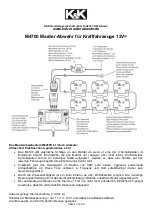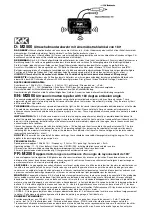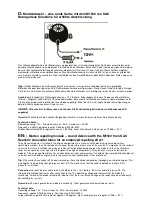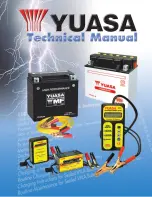
Volvo 1990 780 Model
●
Stopping the engine suddenly after high speed driving (so-called "after-boiling" can occur).
To avoid overheating, the following rules should be followed:
●
Reduce speed and downshift when towing a trailer up long, steep inclines. The risk of overheating can
be reduced by switching off the air conditioning system for a short time.
●
Do not let the engine idle unnecessarily for prolonged periods.
●
Do not stop the engine immediately after high-speed driving, but instead, allow the engine to idle for
1/2-1 minute before switching off.
When the risk of overheating is imminent, or in the event of overheating, (the temperature gauge goes
repeatedly into, or stays continually in, the red section) the following precautions should be taken:
●
Switch off the air conditioning system and switch the heater to maximum position.
●
Stop the car and put the gear lever into position N. Do not stop the engine!
●
Increase the engine speed to approx. 2000 rpm (twice idling speed)
pg. 49 Points to remember (cont.)
Electrical system
When replacing the battery or when carrying out work involving the electrical system, the following
should be observed:
●
A battery connection to the wrong terminal will damage the diodes. Before connections are made,
check the polarity of the battery with a voltmeter.
●
If booster batteries are used for starting, they must be properly connected to minimize the risk of the
diode being damaged. For correct connection, see "Jump starting" section.
●
Never disconnect the battery circuit (for example, to replace the battery) while the engine is running,
as this will immediately ruin the alternator. Always make sure that all the battery connections are
properly tightened.
●
If any electrical-welding work is performed on the vehicle, the ground lead and all the connecting
cables of the alternator must be disconnected and the welder cables placed as near the welding point as
possible.
file:///K|/ownersdocs/1990/1990_780/90780_10.htm (2 of 5)12/30/2006 8:27:56 AM
















































